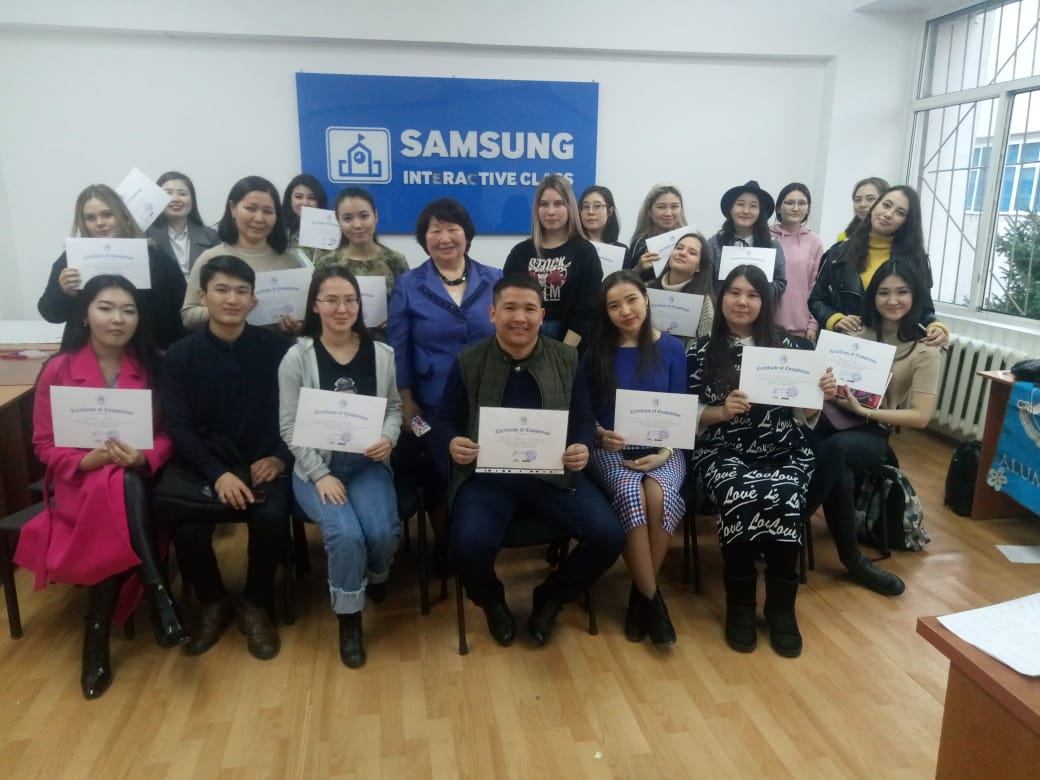Virtual reality for journalists: myth or reality?
Views: 2014

On March 2, 2020, as part of the days of International journalism, the training "Digital immersive journalism and media literacy" was held at the faculty of journalism at al-Farabi Kazakh national University with the support of IWPR, Cabar.asia. the training was attended by students, undergraduates and doctoral students, including from the IT faculty, departments of psychology and political science. Natural Sciences and Humanities are bringing together new digital technologies. Immersive journalism, robot journalism - this is not a ghostly future, they have become a reality in the practice of many media organizations in the world. Now the Brown Institute of Columbia University (new York), one of the main sponsors of innovative projects in the field of new technologies and communication, offers several vacant positions for regional news media for journalists with immersive journalism skills. Galiya Zhunusovna, a certified trainer and Professor of the faculty of journalism of al-Farabi KazNU, showed research projects conducted in the Virtual Human Interaction Lab of Stanford University, USA, in which she participated in 2017 and 2019. she Spoke about the potential of scientific cooperation with the faculty of journalism of Lomonosov Moscow state University, Higher school of Economics, Moscow, where research on new technologies in media and journalism is actively developing. Students made sure that immersiveness is available for journalism. The experience of the pioneer of immersive journalism, Nonny de La Pena, proved to them that to achieve a goal, you must be persistent and purposeful. Her projects in Los Angeles, the "Syria" project, and others have shown the psychological power of the influence of immersiveness on the viewer. The coach also shared the experience of participation of faculty scientists in the "Second Life" project of the University of Leicester, great Britain. Then the participants practically used virtual technologies on VIVO equipment, helmets and trackers to visually verify the specifics of working with immersiveness. The second part of the training "media Literacy" was conducted in an entertaining way. Through games, students learned what the "secret of Giovanni" Is, what they are in media communication "hawks", "ostriches" or "doves", how easy it is to distort information, how fakes arise, and how quickly to recognize them. Certificates were awarded in an informative form, allowing students of different specialties to get to know each other better, to feel like a team that now knows not only the new platforms of journalism, but also the basics of media literacy and fact-checking. Today, new digital platforms are becoming popular in the practice of journalists of the world, among which Kazakh journalists can enter with dignity. KazNU al-Farabi creates all the opportunities new technologies and in the field of media literacy, understanding the importance of work in the information fight for the audience. Reference: Professor of the faculty of journalism, doctor of political science Ibraeva G. Zh. has certificates of international trainings "media literacy coach" (2018), "Digital Media and Journalism" (2019), "Data Journalism"(2019), "Conflict-sensitive journalism" (2020), author of a number of studies such as "Internet consumption of news materials in Central Asia" (2019), "State of the media and the role of social networks in Kazakhstan, Kyrgyzstan, Tajikistan and Uzbekistan" (2018), "The situation with civil society in Kazakhstan, Kyrgyzstan, Tajikistan and Uzbekistan" (2018), and more than 100 scientific articles and monographs








